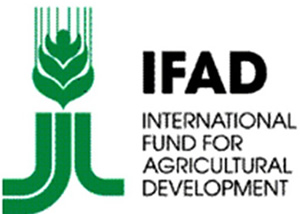 Since the mid-1980’s, Ghana’s impressive development and growth have made the country one of the strongest performers in Africa. Ghana attained lower middle income status in 2011, following three decades of robust economic growth fostered by political stability and a relatively conducive investment climate compared with most other countries in sub-Saharan Africa. As a result of these factors, it has seen increasing direct foreign investment.
Since the mid-1980’s, Ghana’s impressive development and growth have made the country one of the strongest performers in Africa. Ghana attained lower middle income status in 2011, following three decades of robust economic growth fostered by political stability and a relatively conducive investment climate compared with most other countries in sub-Saharan Africa. As a result of these factors, it has seen increasing direct foreign investment.
Rural poverty however remains widespread in the dry savannah region that covers roughly two thirds of Ghana’s northern territory. Unlike the south, where there are two seasons, the northern plains are drought-prone and therefore presents relatively few economic opportunities
While Ghana’s overall poverty rate has declined, the three regions in the north have seen only marginal decreases. Poverty rates in the north are two to three times the national average and chronic food insecurity remains a critical challenge there.
Small scale farmers in Ghana’s poor rural areas have very limited access to the assets that would facilitate a shift from subsistence farming to modern, commercial agriculture. Major constraints to their livelihoods include a lack of infrastructure and equipment – such as facilities for storing and processing products – as well as poorly functioning markets and inadequate skills development, financial services and technical assistance.
In addition, population pressure and short fallow periods lead to soil erosion, loss of fertility and land degradation, all of which pose a long term threat to farmers’ livelihoods and incomes. With few employment options available, many rural young men and some women leave their villages for urban centers. This migration leads to an aging and generally less dynamic population in rural areas. High rates of youth unemployment and social disparities also heighten the dangers of social tension.
The government of Ghana has continuously and consistently shown commitment to reducing poverty through agricultural and rural development. In this regard, the Government’s 2010-2013 Ghana Shared Growth and Development Agenda (GSGDA) stresses the need to focus on agriculture, fisheries, small and medium-scale enterprises and sanitation with special attention to the dry savannah region in the north.
The International Fund for Agricultural Development (IFAD)’s overarching objective in Ghana is to reduce poverty in line with the government’s economic development strategy. Since it began operations here in 1980, IFAD has approved US$224.9 million in loans to support 16 projects worth a total of US$680 million.
IFAD therefore works with government of Ghana to develop and finance programmes that enable rural poor people to overcome poverty by providing rural people with highly concessional loans and grants.
The programme contributes to building inclusive and sustainable institutional systems, backed by pro-poor investments and policies as well as relevant innovation and learning with Ghana being the second largest beneficial of the IFAD country programme in the region.
Currently the IFAD has four on-going individual programmes in the countries. They are: Northern Rural Growth Programme (NRGP),Roots and Tubers Improvement and Marketing Programme (RTIMP),Rural EntreprisesProgramme (REP) and the Rural and Agricultural Finance Programme (RAFiP). The total funding for these projects is worth US$348.3 million, with IFAD providing a share of US$88.2 million of the total amount.
The Associate Country Programs Manager of IFAD-Ghana, Mr. NeilsBossen, in an interview with diplomatic call said that “one of the uniqueness of IFAD is that we fund from our own resources as compared to other UN food and agriculture organizationswho depend on other sources to fund their projects.”
He however added that the IFAD was solely interested in the funding of agricultural and other income-generating projects and not necessarily the implementation of the projects, adding that the IFAD relied on other organizations to implement their projects at the grounds level.
In the second part of this piece, Diplomatic Call would look at the four IFAD supported projects, its impact on the targeted rural people and how they are contributing to the socio-economic growth of the Ghana.
Compiled by; Prince Asare, Diplomatic Call























